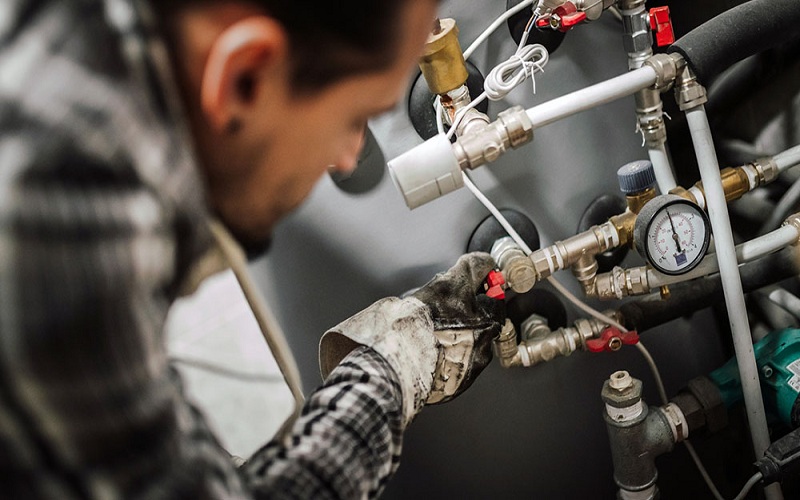Winter brings a picturesque blanket of snow but also ushers in the potential threat of frozen pipes. Large-scale damage from frozen pipes can result in expensive repairs and interruptions to your everyday routine. In this comprehensive guide, we’ll explore effective strategies to prevent frozen pipes and protect your home during the winter months.
Understanding the Risks of Frozen Pipes
Before we delve into prevention measures, it’s crucial to understand why frozen pipes pose a threat to your home:
- Pipe Expansion: When water freezes, it expands. This expansion can exert immense pressure on your pipes, leading to cracks or bursts.
- Blockages: Ice formation within pipes can create blockages, impeding the flow of water and causing pressure buildup.
- Water Damage: Large volumes of water can be released from a burst pipe into your house, causing major water damage to your belongings, walls, and ceilings.
Signs of Frozen Pipes
Recognizing the early signs of frozen pipes can help you take prompt action and prevent potential disasters:
- Frost on Pipes: Visible frost on exposed pipes is a clear indication of low temperatures affecting the water inside.
- No Water Flow: If you turn on a faucet and no water comes out or the flow is significantly reduced, it may be a sign of frozen pipes.
- Strange Odors: A noticeable odor, often described as a musty or unpleasant smell, may indicate a frozen pipe.
Preventive Measures to Avoid Frozen Pipes
Insulate Exposed Pipes:
- Use pipe insulation sleeves to cover exposed pipes in unheated areas like basements, crawl spaces, and attics.
- Ensure that insulation is snug and covers the entire length of the pipe.
Seal Cracks and Gaps:
- Identify and seal any cracks or gaps in your home’s exterior walls, especially near pipes.
- Use caulk or insulation to close these openings and prevent cold air infiltration.
Apply Heating Tape:
- Install electric heating tape on vulnerable pipes. This tape produces heat to prevent freezing during extremely cold temperatures.
Maintain Adequate Heating:
- Keep your home adequately heated, even if you are away. Set the thermostat to a temperature above freezing.
- Open cabinet doors under sinks to allow warm air to reach pipes.
Allow Faucets to Drip:
- When temperatures drop significantly, let faucets drip slightly. The continuous flow of water can prevent freezing.
Disconnect Garden Hoses:
- Disconnect and drain outdoor hoses. Close the inside valve supplying the outdoor spigot.
Insulate the Attic:
- Properly insulate your attic to maintain a consistent temperature throughout your home, including the areas where pipes are located.
Professional Inspection:
- Schedule a professional inspection with a Huntersville plumber to assess the vulnerability of your plumbing system.
- Plumbers can identify potential issues and provide recommendations tailored to your home.
Huntersville Plumber: Expert Assistance When Needed
While preventive measures go a long way, there are instances where professional assistance becomes crucial. A Huntersville plumber possesses the expertise to address complex plumbing issues and offer personalized advice for your specific situation. If you’re unsure about the condition of your pipes or need guidance on winterizing your plumbing system, consulting a professional is a wise decision.
Conclusion
Preventing frozen pipes requires a combination of proactive measures and vigilance. By understanding the risks, recognizing early signs, and implementing preventive strategies, you can safeguard your home from the damaging effects of frozen pipes. Remember, a Huntersville plumber is your ally in maintaining a robust and resilient plumbing system. Stay ahead of winter challenges, and enjoy a warm and worry-free home during the coldest months of the year.

